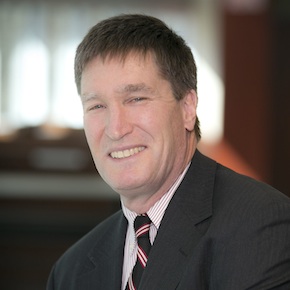 You may recall the controversy over Emory Law professor Paul Zwier, who, in the first week of 1L classes, dropped the n-word during a class discussion of offensive battery. Emory Law reacted swiftly to the debacle, and announced the steps the school and Zwier have agreed to in the wake of the issue.
You may recall the controversy over Emory Law professor Paul Zwier, who, in the first week of 1L classes, dropped the n-word during a class discussion of offensive battery. Emory Law reacted swiftly to the debacle, and announced the steps the school and Zwier have agreed to in the wake of the issue.
Perhaps most importantly, Zwier will not be teaching any classes where the students do not have the ability to select their professor — that’s means he’s out of the 1L teaching rotation for two years. All told, there are four steps Zwier will be undertaking to make amends for his actions:
1. For the next two years, Professor Zwier will not teach any course in which students do not have the ability to choose their professor (mandatory first-year courses).
2. Professor Zwier has volunteered to revise the teacher’s manual for his textbook(s) to include suggestions of ways in which faculty who use his text might avoid offending students when covering racially sensitive materials.
3. Professor Zwier will work with a small group of student leaders and faculty (with the assistance of experts from Emory’s Faculty Staff Assistance Program) to create opportunities to engage in dialogues focused on racial sensitivity, and he will agree to participate in the resulting dialogues. (This would be similar to some of the activities that formed a part of Emory’s Transforming Community Project.)
4. Professor Zwier will participate in sensitivity and unconscious bias training, to be prescribed by OEI.
In a letter to the Emory Law community, interim Dean James B. Hughes expressed his hope that these steps will help to heal the community and move everyone forward on a productive path:
“Professor Zwier has agreed that each of the above actions is appropriate, and he is in full support of them,” wrote Hughes. “Moreover, he has given me his express permission to share with the community this resolution.”
“We are a diverse collection of individuals bound together by a common set of interests and values,” wrote Hughes. “We sometimes disagree among ourselves and disappoint each other, but the ties that bind us compel acceptance of our flaws and forgiveness of transgressions—especially when mistakes are acknowledged, sincere efforts to make amends are made, and forgiveness is sought.”
The president of Emory’s Black Law Students Association, Wrenica Archibald, expressed support for the steps the law school’s taking in response to the incident:
“I welcome the opportunity for community growth—that is what the unity rally echoed,” Archibald said in a statement. “We, as the Emory Law community, have a ‘charge to keep’ and now we, both individually and together, must demonstrate our commitment to that charge through our actions, allowing our minds and our hearts to be transformed towards progress.”

Why Better Billing Statements Can Improve Your Firm’s Finances—And Your Client Relationships
Outdated billing is costing law firms money. Discover how clear, modern billing practices boost profits, trust, and cash flow in 2025.
Zwier also wrote a letter, his second on the matter, to the Emory Law community apologizing and taking responsibility for his actions:
“When I am reminded of the thoughts that go through one’s mind when anyone uses the ‘N word,’ I must fully acknowledge what a mistake it was to say the word,” Zwier wrote. “Any attempt to explain ignores the fears and realities of racism that still haunt our society and my responsibility for protecting our community from it. I fell short in discussion of matters that are important for us to understand about the response of the law to changes in evolving views of race in American society.”
It’s nice to see the law school working on such a sensitive topic in a productive and thoughtful manner. Hopefully, this will prevent a similar issue from happening in the future.
 Kathryn Rubino is a Senior Editor at Above the Law, and host of The Jabot podcast. AtL tipsters are the best, so please connect with her. Feel free to email her with any tips, questions, or comments and follow her on Twitter (@Kathryn1).
Kathryn Rubino is a Senior Editor at Above the Law, and host of The Jabot podcast. AtL tipsters are the best, so please connect with her. Feel free to email her with any tips, questions, or comments and follow her on Twitter (@Kathryn1).
